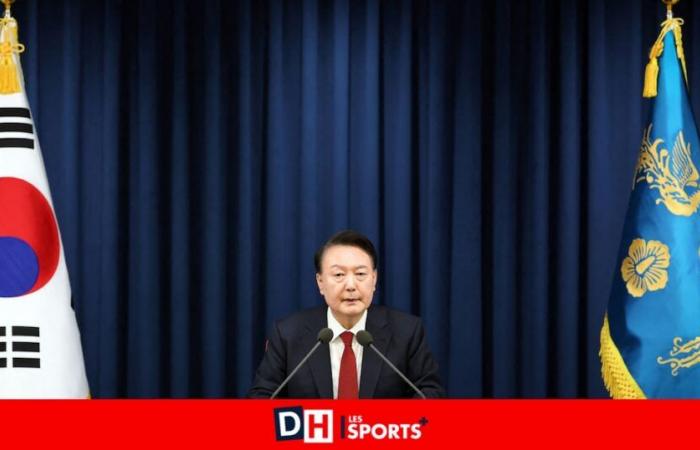
The 20 IOC investigators, assisted by 80 police officers, still managed to enter the property “by taking a circuitous path on the hillside”, explained an IOC official during a press conference.
They then came up against some 200 soldiers and agents of the presidential security service, who formed a human wall by holding each other's arms.
The investigators ended up leaving around 1:30 p.m. (04:30 GMT), empty-handed, under the lenses of cameras and hundreds of pro-Yoon demonstrators gathered outside.
“Altercations”
“There were minor and major physical altercations” between the two camps, he continued, specifying that no member of his team had seen Yoon Suk Yeol during the raid.
“Forcing passage was not realistically possible,” he added, citing “serious security fears.”
The presidential security service had already prevented several searches in recent days by investigators at the home of the deposed president, who refused to respond to several summons from investigators.
South Korea: justice issues arrest warrant against ousted president Yoon
The IOC has until January 6 to execute the arrest warrant for Yoon Suk Yeol, issued by a Seoul court on Tuesday for questioning.
After his failure, he appealed to interim President Choi Sang-mok, demanding his support for the arrest warrant.
An arrest of Yoon Suk Yeol, who officially remains the head of state and is only suspended pending confirmation by the Constitutional Court of his dismissal voted by the deputies, would be unprecedented in the history of South Korea .
Evangelists and YouTubers
Mr. Yoon's lawyers argued that the police had no right to intervene in the presidential residence, classified as a “secret defense installation.”
“We express our deep regret over the illegal and invalid execution of the arrest and search warrants,” said one of the lawyers, Yoon Kab-keun.
Hundreds of Mr. Yoon's supporters, including well-known far-right YouTubers and evangelical Christian preachers, have gathered near the presidential residence since Thursday evening.
“Yoon Suk Yeol! Yoon Suk Yeol!”, they chanted, waving red light sticks, under the surveillance of the police.
“We are gathered here today, ready to risk our lives,” Lee Hye-sook, 57, told AFP, accusing the opposition of wanting to “transform our country into a socialist state similar to North Korea.” .
“Lamentable”
Yoon Suk Yeol stunned South Korea on the night of December 3 to 4 by imposing martial law and sending the army to Parliament to try to muzzle him, an episode that reminded the country of the dark hours of the military dictatorship .
He was forced to backtrack hours later after MPs managed to enter parliament and pass a motion demanding the lifting of martial law while thousands of protesters gathered outside.
The 64-year-old former star prosecutor has shown no regrets since his dismissal by Parliament on December 14, even vowing in a letter to his supporters to “fight until the end”.
Asia's fourth-largest economy has since had its third leader, with presidential duties now falling to Finance Minister Choi Sang-mok, and is now faced with the risk of violence between security forces.
It is in this context that American Secretary of State Antony Blinken is expected to visit this crucial ally of Washington in the region on Monday.
In particular, according to Seoul, it will be a question of North Korea, which has so far been stingy with comments on the political crisis in its enemy in the South but which described on Friday through its official media a situation of “social and political chaos ” in Seoul.
“The president is equal to all before the law. The fact that he did not comply with a mandate legally issued by a court is truly lamentable,” said Lee Jong-soo, professor of law at the Yonsei University.





